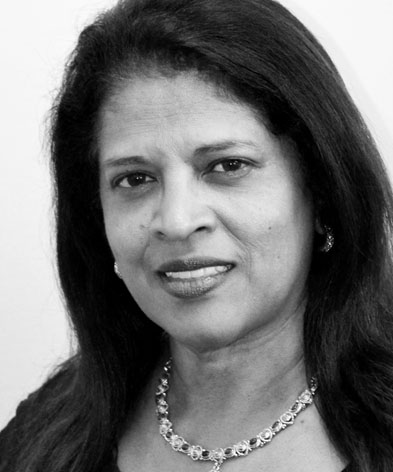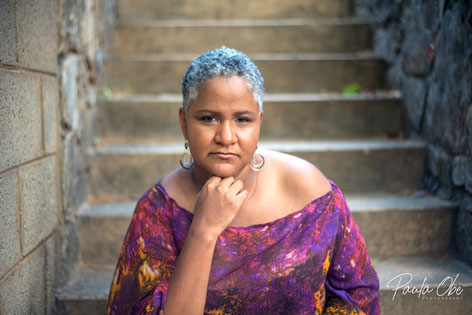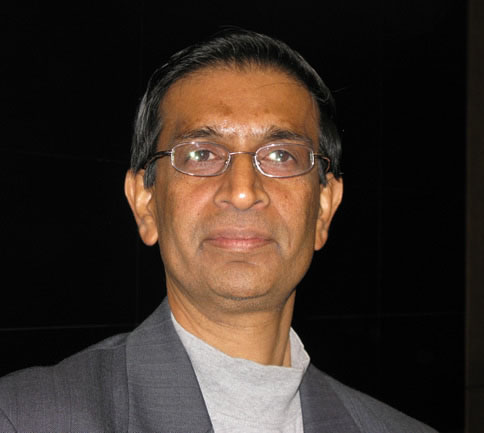 The poems selected here are gifts to Guyana in celebration of 58 years of independence today, May 26, 2024. As the poems demonstrate, there is no homogeneity, and it is not easy to find definitions for Guyanese independence literature. It is just contemporary Guyanese literature, which is almost as varied as the individual poets and their different preoccupations.
The poems selected here are gifts to Guyana in celebration of 58 years of independence today, May 26, 2024. As the poems demonstrate, there is no homogeneity, and it is not easy to find definitions for Guyanese independence literature. It is just contemporary Guyanese literature, which is almost as varied as the individual poets and their different preoccupations.
However, one can find a few things to say about the way the selections define or illustrate the contemporary poetry that has emerged after nearly six decades of independence. Literature has moved in several directions, driven by specific factors, including cultural, racial, religious, spiritual, and those influencing the art of writing itself. Today’s poems are a representative mixture of the established: Janet Naidu and Sasenarine Persaud; the fairly new – Ruth Osman; and the younger generation of rising authors of the twenty-first century – Makeda Braithwaite.
Understandably, given the limited space, many are missing who are very representative, relevant and even outstanding. The four selections below include poets with long careers who are steadfast in the fabric of Guyanese literature, but who are currently topical because of what they contribute to the literature and the fact that they have recently published new books. Only the last, Braithwaite, is unpublished, but she represents the rising corps of very new, unpublished Guyanese poets, whose voices may be worth revealing to the public.
Braithwaite is the newest decorated and recognised young writer since Subraj Singh. Different sets of critics agree she is quite a find. She was awarded third place in the 2022 Guyana Prize for Literature Fiction category and described by the jury as “one to watch”. Next, she was one of only two poets shortlisted for the 2023 Guyana Prize in the First Book of Poetry category by a different jury. Braithwaite, a recent graduate in English, is on staff at the University of Guyana Press, and the poem “Roots” is taken from her collection ‘Go Fish – Go In De Pack’, the manuscript for which she was shortlisted. Hers is a new voice, quite modernist, feminist and existentialist, with a concern for history and identity.
Persaud has published several works of fiction and poetry to establish himself as a prominent contributor to the corpus of Guyanese East Indian literature, in which he has made his mark. This poem, “Waiting For Yamraj” is taken from his latest collection Mattress Makers (Mawenzi House, Canada, 2023), which articulates a wide range of concerns, but does not vary from his consistent interest in Hinduism, which has taken him deep into Vedic philosophy. This poem is particularly based on the spiritual with its references to ritual as well as the Hindu pantheon, faith and many cultural customs. Poems like this one are illustrations of Persaud’s contribution to contemporary literature. Mattress Makers, additionally includes poems about Guyana’s Hindu festivals. The collection was awarded third place in the 2023 Guyana Prize.
Naidu is also very much a part of that branch of Guyanese literature enriched by the Hindu faith. She has several publications, and this poem “Kali Mai” is taken from her latest collection River Crossing (Greenheart Press, Canada, 2023). It is verse in praise of the goddess Kali in her warlike manifestations. Kali worship is also central to the hybrid religion Kali Mai in Guyana. Naidu has been a consistent contributor to contemporary poetry and this poem is another example of the kind of work to be found therein.
Osman has been performing music and poetry on stage for quite a while, and has established a career in Trinidad and Tobago. She has just published her first collection of verse, All Made of Longing (Bamboo Talk Press, Trinidad, 2023), which won the Guyana Prize for First Book of Poetry 2023. Among the things that Osman brings to the literature is a strong sense of domestic existence while articulating the independent voice of a woman. The poetry celebrates Guyanese things which may be otherwise regarded as ordinary, but which are given substance by Osman’s verse.
Roots
A tree without roots does not live very long.
Let me tell you about a tree without roots,
it tumbles over without nothing to anchor it.
It dies, without nothing to feed from.
A tree without roots – is nothing.
That’s why it’s called a family tree.
You trace the roots back, back, back,
fingers thumbing the lines because bhaje,
uncle, great-uncle, the sorcerer, the poet,
the slave trader, the plantation owner,
the creditor, the seas that part through the
slack of your bloodlines until you find the
shores, white or brown, roaring or silent.
To go to archives, into books kept for centuries and say,
Yes! Aunty was right, there is the name of the one who came
here first. Or to find the stories of the past, on an elder’s tongue
In the language of a people not so long gone.
To trace the pictures on a rock, of a history present.
To know, to know, to know.
I looked for a name.
I know the one stamped on the pages does not belong to me.
I see in the book of my kin, Hercules, six foot, strong negro.
There are no roots. There are no branches.
I wish to burn the name of the stain that taints my own.
The colour of my skin, watered down through rape,
Through hatred. Through mystery.
Your ancestors came as slaves. You don’t even know your name.
But come next year, press your thumb by my sigil.
Make your covenant with me, nameless thing.
But this nameless thing takes her hands and parts the mud.
And presses her hands to roots of a silk cotton tree,
And it tells me – come, take seating.
Give life.
Give air.
Take my name, daughter.
I offer you anchoring, I give you roots
Makeda Braithwaite
Waiting for Yamraj
for Raj (Radharaman Upadhyaya 1957-2016)
This wasn’t who we were. A faltered voice
above bedside commode. Visiting holy sites
in that holy land reconnecting: We change
ourselves not the world. Here’s a banana.
Would you like some Prasad—you shared
sacred fruits, food of the Gods consecrated,
offered sacrifices to flames in khunds*
for others—hundreds, thousands: may
you live long. May your offspring prosper.
May you live for a 1,000 years—for others:
Oblations to you Shiva. Oblations to you Kali
Rama, Vishnu, Durga. Oblations Nataraja
may your fire spread through the three worlds
may you consume this caner, may these ashes
fertilize our earth. All we’ve learned unlearn
This isn’t who we were, are: waiting for Yama**
* A small metal vessel in which a sacrificial flame is lit during a puja, or prayer
ceremony. In ancient times, a small geometric hole in the ground served this
purpose.
** Or Yamraj—the lord, or God of death
Sasenarine Persaud
Kali Mai
Your naked offerings unfold
at lightning speed!
You come into my small room
wearing your garland of heads
casting away fog in my mind.
At night, you move mountains
with weapons and snake in your hands.
Your eyes without fear
convince me of the fuel lingering inside
.
Mother of all treasures,
your ornaments – skull and bones
dangle before me.
Is this your power of light?
Your soothing dark complexion
reminds me of the absolute,
genuine in the highest of beauty.
Dark skin Goddess, you enter the battlefield
and dance without control – Fearless!
Waking me up with your strong voice,
“Come with me! Thunderstorm tonight!”
As the winds blow and the rain comes,
you break away stereotypes and barriers,
like knocking down trees in fierce liberation
I know your footsteps from room to room,
weapons in your hands
as if life and death meet at the crossroads –
Demons to destroy!
Oh wise Kali, take me out of this cave!
Wrench me free! Give me your blazing fire.
Show me your dance again!
Janet Naidu
Handwritten
No keys—
no stilettoed words tottering
on sidewalk, clipped phrases flailing
at the sky.
Tonight
I write
.
Nib to paper
ink on white
feet tucked under
windows flung
wide …
Welcome
kind angel.
I dim the light
so you can come closer.
Talk to me.
I am listening.
Ruth Osman









